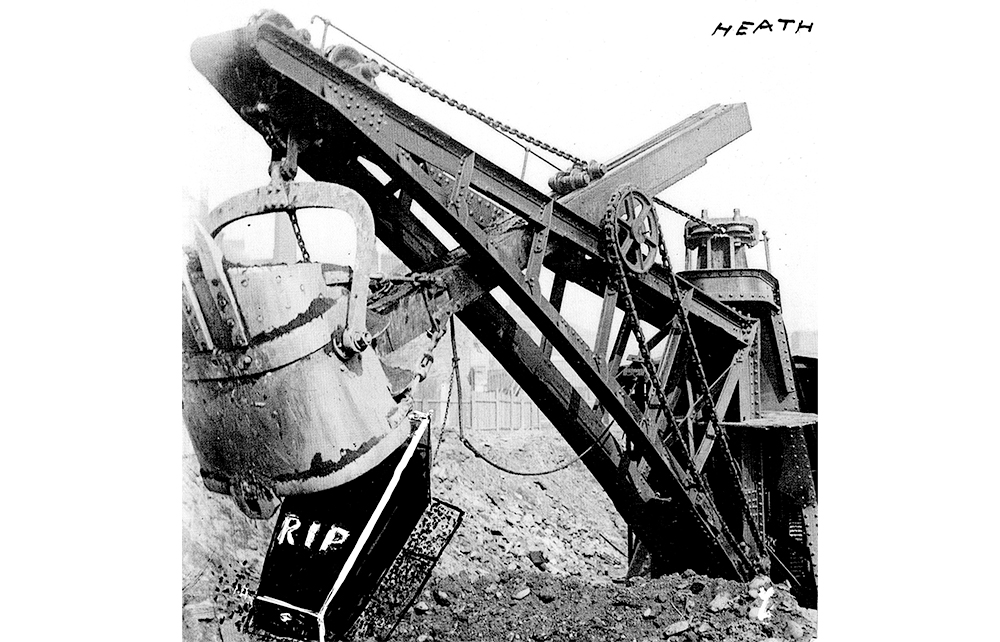There are two untraditional ways to take your leave of this world in Britain. The bleaker is the ‘direct cremation’ method whereby, with no prayers and no mourners, a funeral director will take your remains from mortuary to crematorium to be burnt without troubling your friends and relations. The other is the ‘celebration’.
According to Co-op Funeralcare in its new report, called ‘Go Your Own Way’, no fewer than 68 per cent of people it polled regard funerals as a celebration of life, up from 58 per cent five years ago. Out go prayers, black funeral dress and solemnity; in come Doctor Who themes, glittery coffins and guests dressed in football shirts. Or as the report puts it: ‘Personalisation is key.’
The venues are quirky too. Fifty-seven per cent of funeral directors have been asked for non-church services and nearly half have been asked for non-traditional settings, from a betting shop to a cricket pavilion to Hampton Court Palace. I attended drinks after a cricket-themed funeral recently; lots of the attendees were in their club kit.
It’s a bit like weddings. As soon as you let people out of churches and register offices, you end up with nuptials in hot air balloons and on beaches. Funerals have gone the same way: they’re increasingly upbeat (and expensive) events to reflect your personality.
To mark the new trend, Co-op Funeralcare joined with Channel 4 for a three-part digital mini-series called Celebrity Send-off to give ‘a well-known famous face…the chance to watch their own funeral. From UFO-themed funeral flowers to outdoor services, each week one half of the celebrity pairing will be tasked with arranging a funeral fit for their loved one.’
The point is the difference between the wishes of the organiser and those of the person whose funeral is being planned: one thinks he or she has the perfect obsequies only for the other to point out that actually, he/she wants to be buried in Nigeria/have a church funeral/absolutely no doves. It’s like the old series, Mr & Mrs, only with coffins.
Going your own way can be tricky for clergy when families want a church service with the celebration. One priest friend observes: ‘I know many priests reacted with horror to the funeral of [Pogues frontman] Shane MacGowan, with its “anything goes” atmosphere.’ That funeral was distinguished by ‘Fairytale of New York’ being played in an Irish church with the congregation literally dancing in the aisles. ‘We dreaded families asking for the same thing,’ he says. ‘Having said which, bereavement is a time when people may be fragile and need sympathy and sensitivity. Get it wrong and all the family will remember is that you refused their wishes and it may evoke great anger.’
His compromise is to leave the personal stuff for the graveyard or crematorium. Trouble is, people have got it into their heads that they can have a funeral whatever way they want. One priest recalls a man who declared: ‘It’s my funeral and I’m paying for it.’
The obvious problem with the celebration idea is that funerals are sad affairs. Most of us do not go to the funeral of someone we love in a celebratory mood. Fundamentally, the cultural divide between celebration and funeral service reflects a difference of understanding on what the event is about. This understanding varies according to denomination, but the most extreme difference from a secular celebration of a life is a Catholic funeral mass, where part of the point is to ask God to forgive the sins of the dead. Although some families bridle at this, one priest tells me: ‘Sometimes, however, the deceased may have been notorious and the official prayers come as a relief.’
Fr Shaun Middleton, a Chelsea parish priest, agrees. ‘Of course you say that you remember the good things about the deceased,’ he says, ‘but we ask God to forgive that person for whatever there was in his life that needs forgiveness.’ More than that, he says, ‘at a funeral mass we’re not afraid of the meaning of death. In secular funerals, you can’t face the thought of it’.
The irony is that it’s actually the godless ceremony that tends to avoid the reality of the extinction of our mortal life, and it’s the Christian one that faces the bleakness of ‘dust to dust, ashes to ashes’. Yet the usual charge is that Christians go in for God–bothering to avoid confronting our mortality.
The late Auberon Waugh was in no doubt about where he stood on the celebration front. ‘For myself,’ he wrote, ‘if anyone attending my funeral is not dressed in black, I shall haunt him through all his waking nights, dressed in South Sea Island shirt and Bermuda shorts and howling like a banshee.’ So much for going your own way.








Comments